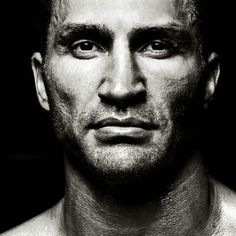 There’s been a great wailing and gnashing of teeth down Cape Town way in recent weeks.
There’s been a great wailing and gnashing of teeth down Cape Town way in recent weeks.
Poor darlings. Eddie Jones did the sensible thing and shipped out for a higher profile job worth far more cash. It was messy, but any other coach would have done the same.
John Mitchell has now been suited up for the job and it will definitely be a case of hold on tight for Stormers fans. Intense as a player, the New Zealander is intense as a coach. Slackers will be shown short shrift.
All bets are off as the new season looms large. Change has been the rage with new coaches installed in Bloemfontein, Cape Town and Pretoria.
Gary Gold is still in charge of the Sharks and has a better crack at things this time round, getting in the pre-season graft he never managed last season. But there’s no less pressure on him. The Sharks may have lost the formidable Du Plessis duo, but that won’t count as an excuse when the season marches on. They need to produce performances commensurate with their status as one of rugby’s great franchises with a tradition of innovation and adventurous rugby.
The Cheetahs had become stale in recent years. They were always good for a couple of memorable performances, but inevitably lost their way. Naka Drotske was thanked and duly shown out, with old boy Franco Smith taking charge. Smith endorses the open rugby the Cheetahs enjoy, but he’s also a rational man; he’ll want to shore up the defences, particularly in Super Rugby where attacking play flourishes.
Nollis Marais has come up through the ranks in Pretoria. In his brief time in charge of the Currie Cup side, you could see the Blue Bulls embracing a modern game rooted in flair and pace. Hallelujah.
Complacency had taken hold at Loftus Versfeld, but he’s cracked the whip and seems intent on changing the old dogma that pervades Blue Bulls rugby. Here’s hoping he can also harden up the front five to match an exciting back division.
I expect we might have a lot of fun watching them, but they’ll be a little undercooked to threaten the top dogs.
The Lions will be the most settled. They won the Currie Cup by being bold, Johan Ackermann giving them the keys to play with adventure. It was a style that emphatically proves that SA rugby can evolve, although their thrill-seeking spirit will be tested in Super Rugby. Sometimes pragmatism must rule over panache.
If any coach requires our collective sympathy it is Brent Janse van Rensburg of the Kings. The young coach – he’s 35 – is new to rugby’s top table and has had to watch as his squad has been raided just months out from re-entry to Super Rugby. The tournament is merciless and even solid teams get thrashed. His lot have struggled with off-field dramas which must be highly damaging to morale. SA Rugby has pitched its tent in Port Elizabeth and is helping out, but they may have done better with a miracle worker.
The biggest prevailing issue in local coaching surrounds Heyneke Meyer’s position as Springbok coach. Anecdotal evidence suggests the sentiment towards him in the boardroom is around 50-50, with a decision being made in the second week of December.
It won’t be easy. If there is to be a change, it must be one that is a demonstrable improvement. It’s easy to damn Meyer and his methods, but the trouble is that SA’s coaching stocks aren’t what they should be. We don’t have coaches with multiple Super Rugby titles running around, much less others who have won in Europe or made their names overseas.
Allister Coetzee’s name has been thrown into the mix, but this is the silly season, remember.
There’s a big push for Ackerman to be given the job on account of the terrific job he’s done at the Lions. But Currie Cup is a shallower pond than Super Rugby. He made a good fist of things in the 2015 edition, but needs to build on that next year.
The idea of a foreign coach has merits, but it’s not a path SA rugby will go down in a hurry. And nor should it. – © Sunday Tribune










